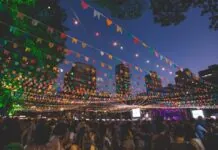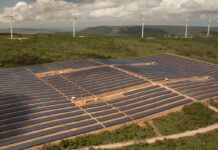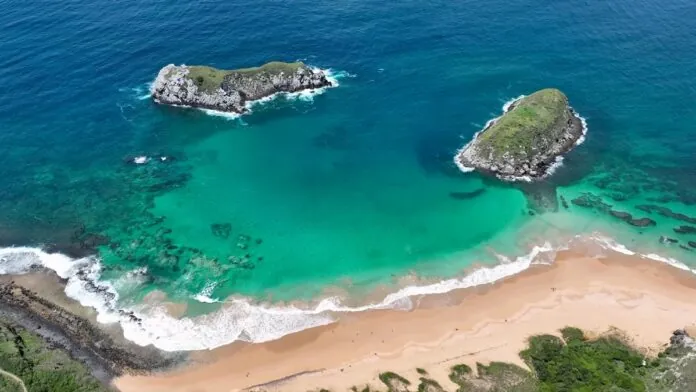
Fernando de Noronha rises beyond the edge of mainland Brazil, cut off by distance and wrapped in clear ocean.
High cliffs fall straight into the sea, and every beach stays open, clean, and shaped by the tide alone.
The island stays far from crowded ports and faded resorts, held in place by rules that guard each ridge, trail, and bay with care that mainland coasts forgot.
This guide will take you through the parts of the island that stay with you long after the trip ends.
Where is Fernando de Noronha Located?
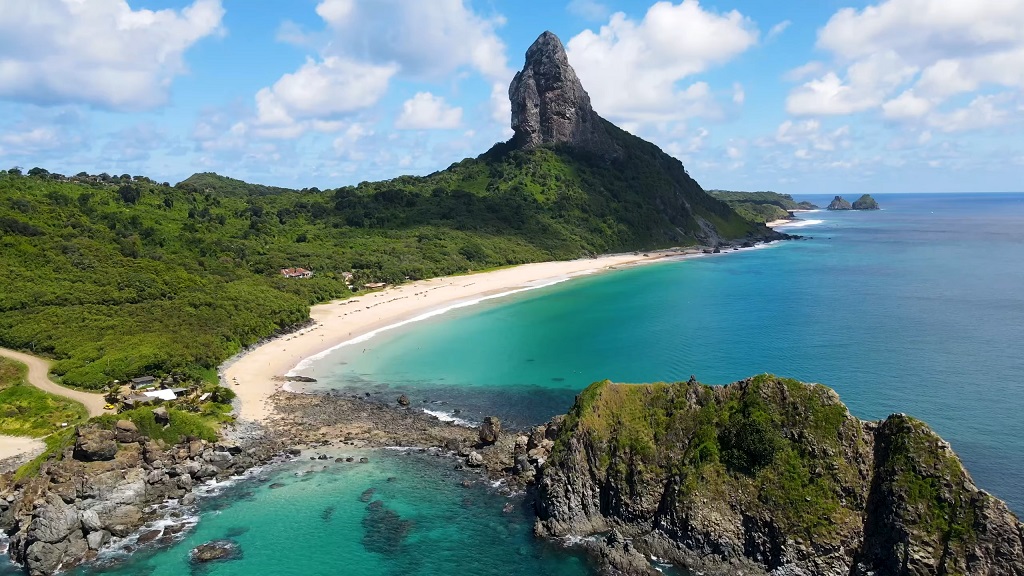
| Country | Brazil |
| State | Pernambuco |
| Distance from Mainland | About 350 kilometers from Recife |
| Main Access | Flights from Recife and Natal |
| Time Zone | UTC minus 2 (one hour ahead of Brasília) |
| Total Islands | 21 (only one is open to visitors) |
| Airport Code | FEN |
| Entry Type | Air only, with daily limits |
Fernando de Noronha lies deep in the Atlantic Ocean, far off the northeastern coast of Brazil, held in place by distance and strict national controls.
The island falls under the state of Pernambuco, though its isolation creates a clear sense of separation.
Flights arrive daily from Recife and Natal, with travel times under ninety minutes. Ferries do not reach the island, bridges do not exist, and entry is only by air.
Only one island allows visitors, and it holds every hotel, beach, road, and service. The remaining islands remain closed under federal protection.
Travel across the main island covers short distances, with all movement handled by local vehicles, taxis, buggies, and the public bus line.
The terrain shifts quickly, with cliffs, sudden drops, and open curves that form long bays. Most beaches face west or south, shaped by the wind, the tide, and the sun across each part of the day.
Best Hotels in Fernando de Noronha
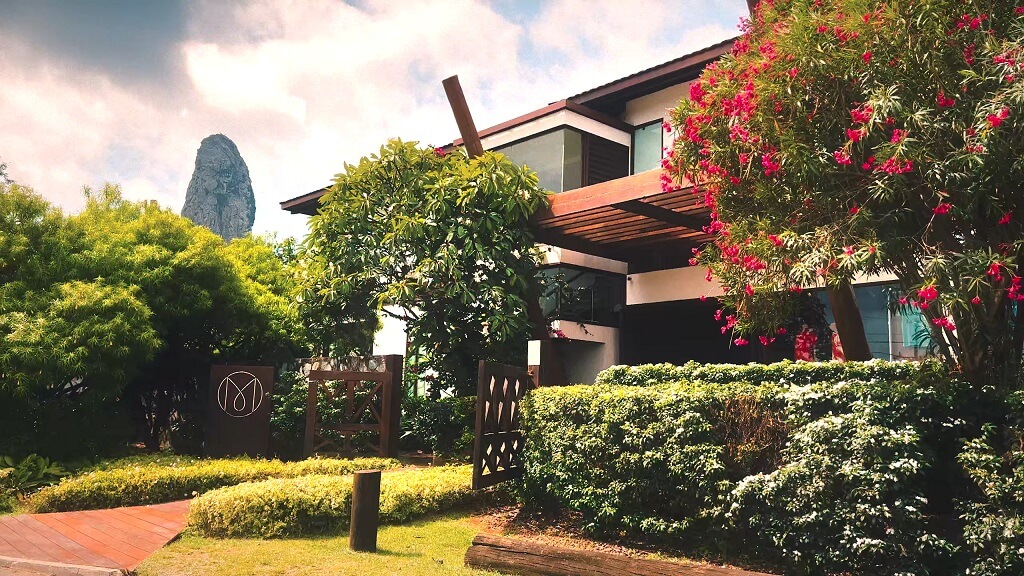
Most places offer comfort, quiet, and a strong connection to the natural setting.
Some sit above the cliffs, others near the main village, and a few stay hidden behind trees with sea views through the branches.
Booking early is not a tip here. It is the only way to get what you want.
Also, do not forget to get a travel eSIM before starting your trip, as it will make it much easier to stay connected, confirm your booking, and stay online without spending on roaming services or searching for a local SIM card.
Luxury Hotels
Pousada Maravilha
View this post on Instagram
Private bungalows and sea-facing rooms above Sueste Bay, with an infinity pool, quiet views, and full privacy for guests who want space and calm.
Pousada Morena
Modern design with wide open decks, a strong pool view toward Morro do Pico, and full comfort without excess. Quiet, polished, and steady.
Pousada Triboju
View this post on Instagram
Spacious villas with wood interiors, soft lighting, and a private feel. Tucked in nature but close enough to reach beaches and the village quickly.
Pousada Maria Bonita
Well-built, sharp in design, and run with strong care. It sits near the center but avoids noise, giving privacy without full isolation.
Mid-Range Hotels
Pousada do Vale
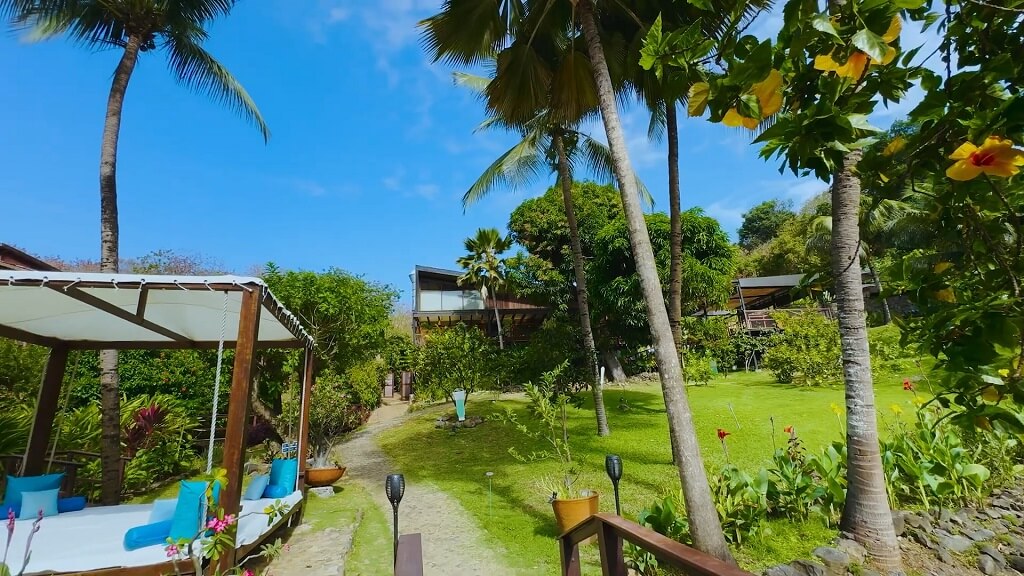
Built into a wide garden space near Praia do Meio. Calm setting with easy access to beaches, restaurants, and short rides across the island.
Pousada Teju-Açú
Raised wooden chalets set among trees. Feels remote but is near the sand. Good food, clean rooms, and a balance between comfort and nature.
Pousada Zé Maria
More social and open, with large grounds and famous food nights. Some rooms face Morro do Pico. Good for longer stays with group energy.
Pousada Alto da Colina (Colina SPA)
View this post on Instagram
Hilltop views, clean layout, and a small pool. Solid pick for travelers who want comfort and distance without full luxury cost.
Budget Hotels and Hostels
Pousada Lenda das Águas
Basic rooms, clean layout, and a short walk to the center. Strong value for those who want to stay near everything without overpaying.
Noronha 350
View this post on Instagram
Simple, steady, and well-rated for service. Calm location, fair setup, and close to restaurants and local shops.
Vila Hostel
Shared rooms, low prices, and a friendly setup. One of the few true hostels on the island, often used by backpackers and solo travelers.
Ilha Hostel
Compact and clean, with basic beds and shared space. A smart option for those who plan to spend all day outside and just need a place to rest.
Beaches You Will Talk About for Years
Fernando de Noronha holds beaches that never repeat each other. Each one forms its own shape, depth, and surface, guided by tide, light, and stone.
No other part of Brazil carries this kind of coastline with such strict care. Walking from one beach to the next builds the trip without needing explanation.
Best for Swimming and Sun
Praia da Conceição
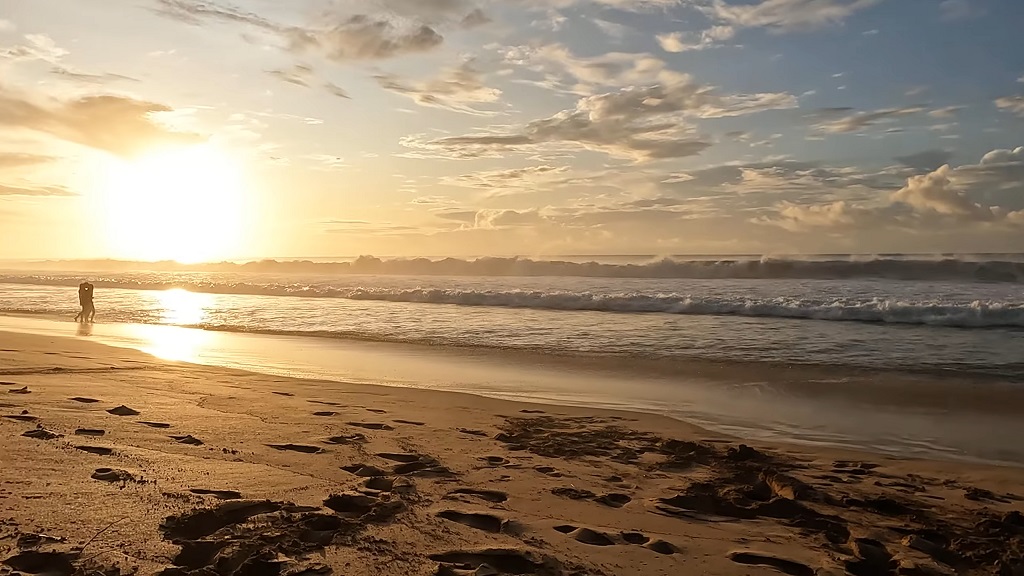
You can reach this beach on foot from the main village in less than fifteen minutes. The walk stays flat, and once you step onto the sand, the view stretches across open sea with Morro do Pico behind you.
Calm water makes it one of the best beaches for swimming on the island. It also draws steady visitors around sunset, when the light falls perfectly across the bay.
Praia do Cachorro
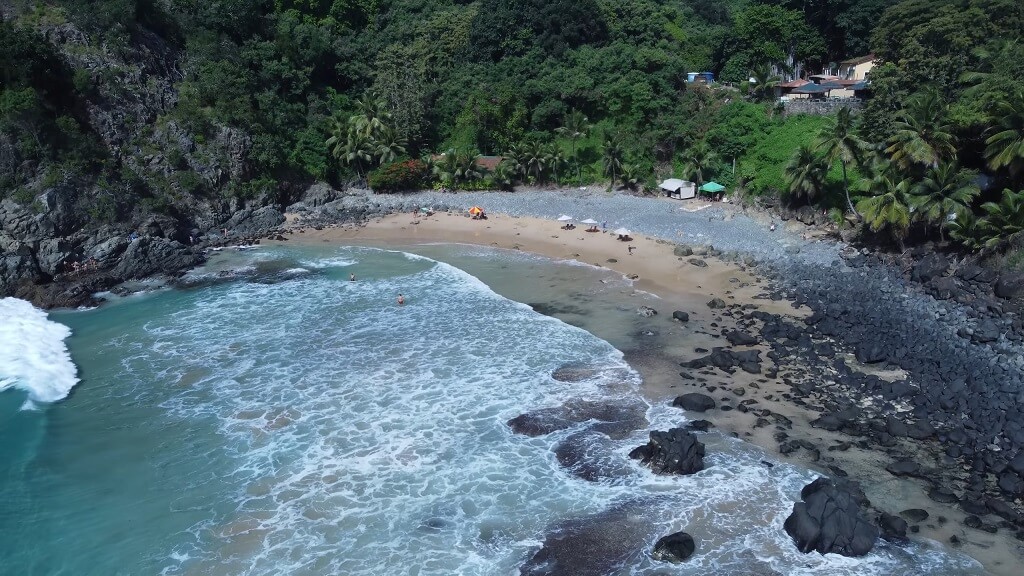
Walk straight down from the village center, and you will reach the edge of this small but active beach in minutes.
The Buraco do Galego natural pool stays warm during low tide and often holds small reef fish. Locals swim here in the morning before heading to work.
It is a fast stop with clear water and full views of the west coast.
Praia do Meio
You can follow the shoreline path between Praia do Cachorro and Praia da Conceição to reach this quiet stretch.
The beach stays open with fewer visitors, giving you space to sit, rest, or swim without noise. Most people pass through without stopping, which leaves it empty even in high season.
Great for a break between walks or a longer stay when the tide stays low.
Best for Snorkeling
Praia do Sueste
You will need to check in at the park checkpoint before entering this beach. The bay stays flat through most of the day, with sea turtles, rays, and reef fish visible just a few meters from the sand.
Rangers require life vests and provide instructions before you enter the water. Conditions stay best in the early hours, before the wind shifts the surface.
Atalaia Beach
Guided tours bring visitors into the Atalaia area at low tide, with timed access and clear group limits.
You will walk along a marked path to reach the natural pools, then float above coral, baby sharks, and sand channels shaped by the sea.
Groups stay small and time is controlled, but visibility here stays sharp. Bring reef shoes and avoid stepping on the rock edge.
Baía do Sancho
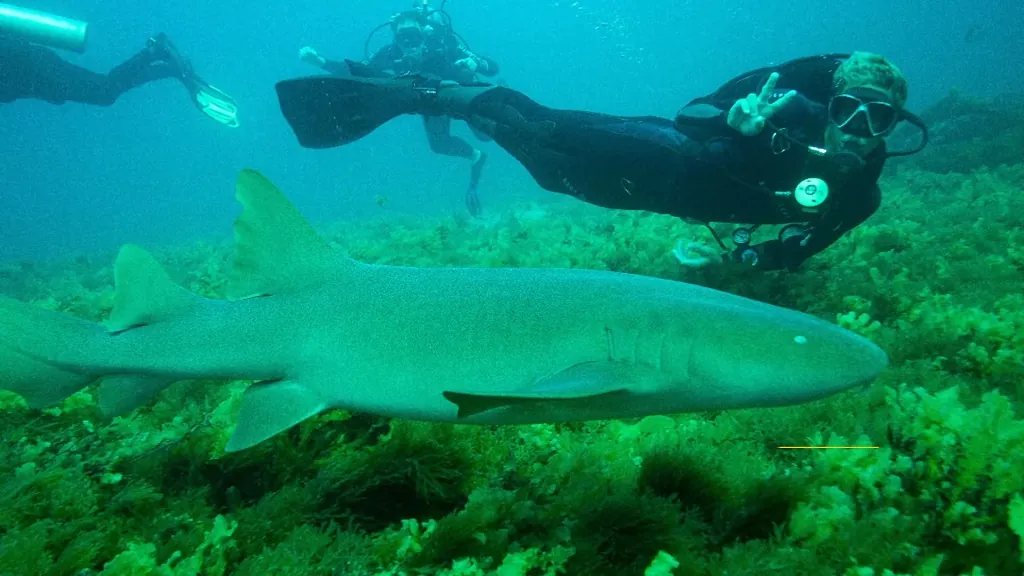
You can also use this beach for strong snorkeling, with reef formations close to shore and calm zones near the cliffs.
Early swimmers often spot turtles and fish schools along the rocks before the tide shifts. Water clarity stays strong when the wind stays low.
Combine swimming and snorkeling here for a complete day without moving far.
Best for Surfing
Cacimba do Padre
Follow the main road past the village and reach this beach on foot or by buggy. Waves here break heavily between January and March, drawing the best surf crowd on the island.
During the off-season, the sand stays open for walking with clean views of the Dois Irmãos peaks. Bring a board if you catch the swell, or bring a camera if you catch the sky.
Praia do Boldró
A short trail leads from the parking area near the old station, and the beach opens below with steady wave sets across the reef edge.
It draws skilled surfers on days with west swell and wind out of the east. The cliff above also works for checking the water before you go in.
You can stay for surf, walk the rocks, or just take in the sunset with full space around you.
Beaches That Complete the Coastline
Praia do Bode
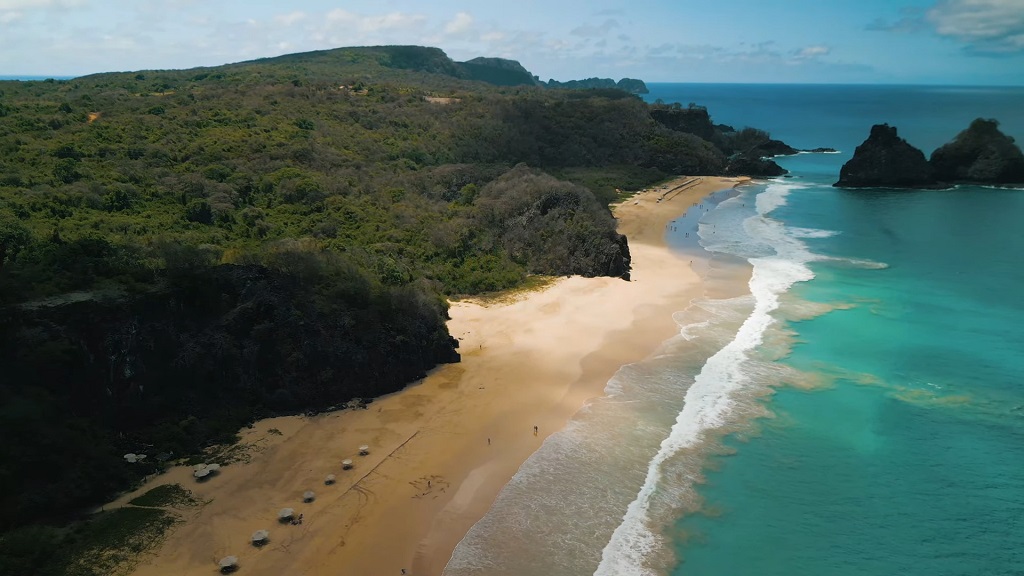
You can reach this beach between Boldró and Cacimba do Padre by walking along the shoreline.
It often stays quiet, with soft sand and open views in both directions. Swimmers use it for quick dips, and walkers often stop for a rest before heading to the next beach.
The path stays simple and is worth the extra stop.
Praia dos Americanos
Reach this one through a side trail from the main road, short but hidden.
The beach sits low between cliffs, with a slope that feels private even on busy days. Most people miss it unless they know where to look.
Small waves make it good for swimming without effort.
Piquinho Viewpoint Trail
Start the trail near Praia da Conceição and follow the ridge upward for full views over the island.
No beach here, but the peak gives you clear sightlines toward all the western bays. Great for early morning or late day when the light sharpens every outline.
Top Attractions Worth Your Time
Fernando de Noronha holds more than beaches and views. Trails reach hidden points across the island. Forts rise over cliffs. Wildlife appears without warning.
You will find key places that define the island’s rhythm, its history, and its shape.
Scenic Points and Lookouts
Mirante dos Golfinhos
High on the northern cliffs, this lookout faces a stretch of ocean where spinner dolphins move each morning.
You can reach it by trail through dense brush just past the visitor center. Early arrivals see more activity.
Mirante do Boldró
This spot gives one of the clearest west-facing views on the island. You can watch sunset over Morro Dois Irmãos or track clouds over the middle coast.
Steps rise behind Fort Boldró and lead to open stone ledges.
Mirante da Praia do Leão
@guianonenoronhaa **🌊 PRAIA DO LEÃO: O PARAÍSO SELVAGEM DE NORONHA! 🦁** 📍 *Fernando de Noronha – PE* Se você quer uma praia **isolada, dramática e cheia de vida marinha**, a Praia do Leão é seu lugar! Aqui, a natureza manda, e o cenário é de tirar o fôlego. ### **🐢 POR QUE IR?** ✔️ **Santuario das tartarugas**: Principal praia de desova das tartarugas-verdes em Noronha (o Projeto Tamar monitora o local!) . ✔️ **Águas cristalinas** com tons de azul que parecem pintura – perfeitas para fotos épicas . ✔️ **Ilhas rochosas** no horizonte, incluindo a Ilha do Leão que dar o nome a praia por parecer um um leão-marinho. ### **⚠️ AVISOS IMPORTANTES:** – **O mergulho é indicado com guia certificado – **Sem estrutura**: Leve água, lanche e guarda-sol – não há quiosques o aluguel de equipamentos pode ser feito na entrada. – **Horário limitado**: Aberta só até 17h30 para proteger os ninhos . ### **📸 MELHOR MOMENTO PARA FOTOS:** **Amanhecer ou fim de tarde** – a luz dourada destaca as rochas vulcânicas e o contraste com o mar azul-turquesa . **#PraiaDoLeão #NoronhaSelvagem #ParaísoPreservado ♬ original sound – arfany cephek1402 – 𝕋𝕒𝕟𝕚 ℕ𝕖𝕨𝕓𝕚𝕖
South-facing cliffs open toward the wild edge of the island. Winds stay strong here, and waves crash across far rock ledges.
Trails stay exposed, but views reach deep across the coast and into turtle nesting zones below.
Trails and Hikes
Trilha do Atalaia
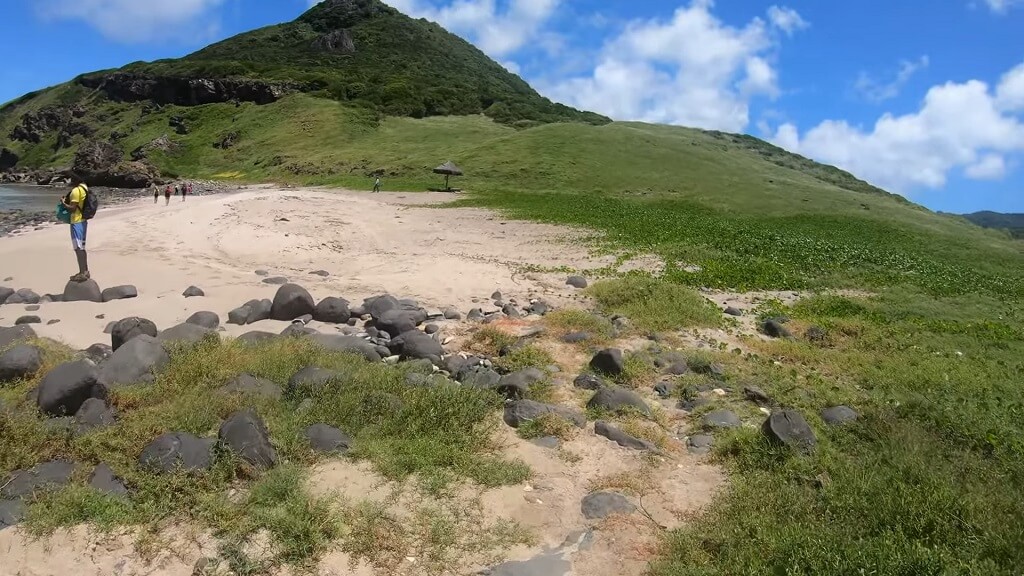
The Atalaia trail requires registration due to limited access. Rangers escort groups across dry rock and low brush until they reach the natural pool.
Tides control the schedule. Footwear must suit wet ground and coral.
Trilha Pontinha-Caieiras
This longer trail runs across the western edge of the island. Walkers pass lava rock, dry soil, and open sea cliffs. Wind rises as you move.
No stops or exits appear for most of the trail, so carry water and wear shoes with grip.
Forts and Historic Sites
Forte dos Remédios
View this post on Instagram
Stone walls built in the 1700s still stand near the village center. Cannons face the sea, and walkways rise through arched entry points.
It is the most complete historic site on the island, easy to reach and open to all.
Forte do Boldró
This small fort sits on a hill near the western coast. It holds less structure than Remédios but gives stronger views.
Grass paths rise from behind the museum area and lead up the slope.
Where to Eat on Fernando de Noronha
Meals across the island follow food habits seen across coastal towns in Brazil. Kitchens rely on fresh seafood, basic grains, and local fruit.
Plates stay heavy and simple, with rice, beans, farofa, and grilled meats served as the base. Some menus change daily. Others stay fixed, with steady local favorites.
Restaurants with a View
Mergulhão
Built near the old port, this restaurant holds open decks with direct views of the sea.
Moqueca takes the lead on most days. It is a hot stew with fish, tomato, onion, coconut milk, and palm oil.
Most dishes include farofa, cooked banana, and seasonal roots on the side.
Xica da Silva
Tucked inside the village, this spot serves picanha, grilled shrimp, and large plates with mixed side dishes.
Beans arrive thick and rich. Vinagrete adds bite, and farofa shows up next to most meats. Drinks stay cold, and the staff moves with pace even on busy nights.
Cacimba Bistrô
It is located near Praia da Conceição. Another place where you can enjoy most of the famous dishes available in this region.
Bobó de camarão stands out. It is a thick shrimp stew made with manioc and coconut milk. Tables sit under trees. Light shifts fast in the evening, but food holds steady.
Local Spots Worth a Stop
Restaurante do Valdenio
View this post on Instagram
Along the road near the airport, this kitchen serves grilled fish, meat platters, and regional rice bowls.
The caldeirada holds strong flavor. Expect chunky broth, bone-in fish, and heat from local pepper. Tables sit near the wall, shaded but tight.
Flamboyant
Next to the main square. Plates come out fast and stay large. Chicken, rice, beans, and fried plantains appear on most tables.
Prices run lower than tourist spots. Visitors come mid-day and stay for the juice.
Tricolor
A favorite with workers and drivers. Dishes hold grilled cuts, cooked rice, black beans, and cassava flour. You walk in, point, and sit.
Food comes in minutes, and tables clear fast before noon ends.
Street Food and Small Counters
Tapioca da Babalu
Evening stand with fresh tapioca filled on demand. Savory options include cheese or beef. Sweet ones add banana or chocolate.
No tables, but the bench nearby works for a break.
Açaí do Palácio
Frozen açaí bowls topped with fruit and granola. Served near the square in plastic cups. No menu board. Locals know the mix.
Ask, pay, and take it to go.
Entry Limits, Fees, and What You Must Follow
Every traveler who arrives on Fernando de Noronha must follow rules set by the state of Pernambuco and IBAMA, the federal environmental agency.
Entry limits control how many people step onto the island. Rules define how they move, where they go, and what they must pay. Skipping one step means missing access.
Two Required Fees
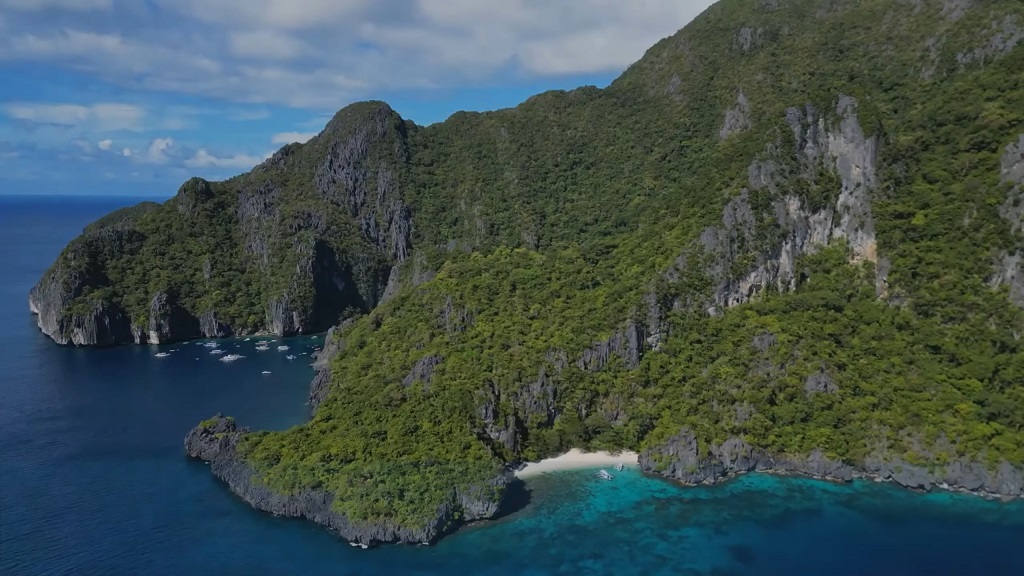
1. Environmental Preservation Fee (TPA)
Every visitor must pay the TPA, a daily tax charged for each night spent on the island.
- Who Pays: All travelers, foreign or Brazilian
- When: Paid in advance or upon arrival
- How Much: Amount increases each day (starting around R$97 per day)
- Where: Online through the official Noronha portal or at the airport upon arrival
Travelers can pay in advance online and bring proof. Delays in payment can block entry.
2. National Park Access Fee
This fee covers access to protected beaches and trails inside the national marine park zone.
- Who Pays: Everyone who wants to visit park areas
- When: Paid once, valid for 10 days
- How Much: R$179 for Brazilians, R$358 for international visitors
- What It Covers: Access to Baía do Sancho, Atalaia, Sueste, Leão, and all controlled park zones
- Where: Online or in person at the visitor center near the airport
Access to the best beaches and trails depends on this pass. No payment means no entry to those areas.
Entry Limits
Only 420 visitors are allowed on the island at once. Every hotel, guesthouse, and tour operator must register names. The airport tracks all arrivals. Unregistered travelers will be denied boarding in Recife or Natal.
- Advance Booking Required: Yes
- Random Arrivals Allowed: No
- International Travel Requires: Passport, visa (if needed), and health form
Access Rules and Conduct
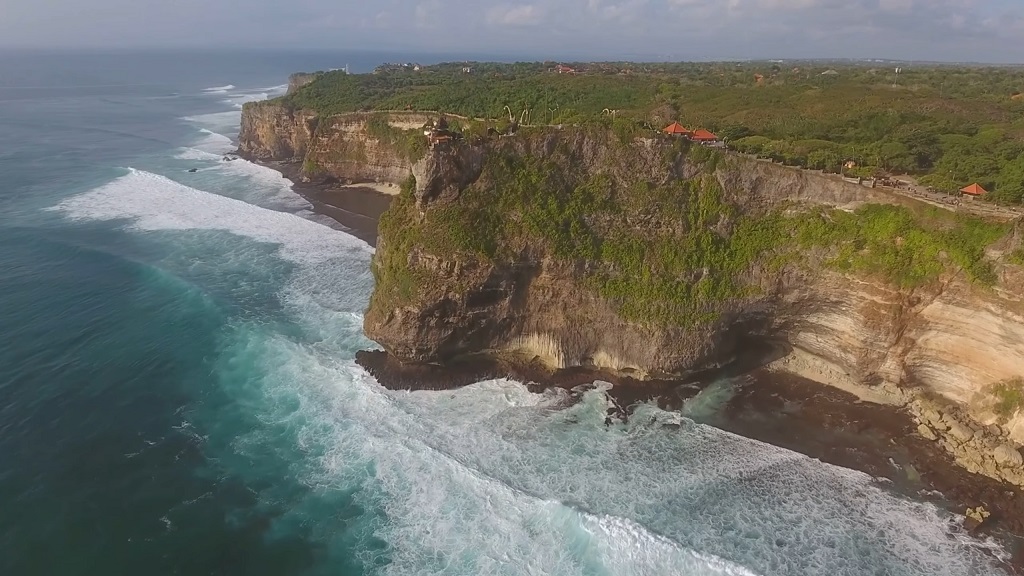
- No Outside Vehicles: Visitors cannot bring cars, bikes, or scooters
- No Drones Without Permit: Most drones are banned unless licensed
- No Plastic Bags or Straws: Banned on the island
- Quiet Zones: Loud sound systems banned on trails and beaches
- Guides Required for Some Trails: Atalaia and Pontinha-Caieiras require official guides
Key Documents to Carry
| Document | Required For | Where to Show |
|---|---|---|
| ID or Passport | Entry and hotel check-in | Airport, hotel |
| TPA Payment Proof | Island access | Entry control desk |
| National Park Pass | Entry to protected beaches and trails | Trailhead or ranger checkpoint |
| Health Declaration (if active) | Entry in specific cases (COVID/post-COVID) | Entry point |
When to Visit and What to Expect Each Month?
The best time to visit Fernando de Noronha depends on what you want most: calm water, open trails, or quiet beaches.
Some months bring sun without rain. Others keep crowds away but close parts of the island.
Sea and sky shift fast, and each season leaves its own mark. Know the rhythm before you book.
| Month | Sea | Rain | Crowd |
|---|---|---|---|
| Jan-Feb | Strong surf west, calm east | Low-mid | High |
| Mar-May | Softer sea, heavier rain | High | Low |
| Jun | Mixed, drying starts | Mid | Medium |
| Jul-Oct | Clear, steady, best balance | Low | High |
| Nov | Rain returns | Mid | Medium |
| Dec | Wild sea, packed hotels | Mid | High |
What to Expect by Season
- Jan-Feb: Hot sun, busy beaches, strong waves
- Mar-May: Rain hits harder, prices drop
- Jun-Oct: Dry paths, clear dives, smooth trips
- Nov-Dec: Weather shifts again, holidays fill rooms fast
Wildlife Guide
| Animal | Best Time | Where to See It |
|---|---|---|
| Dolphins | Jan to Jun | Baía dos Golfinhos |
| Sea Turtles | Sept to Mar | Praia do Leão, Sueste |
| Reef Fish | All year | Atalaia, Sueste, Caieiras |
Final Thoughts
Fernando de Noronha moves at a different pace. Days take shape through simple steps. You may start with a beach, follow a trail, find a view, and still feel like there is more time. The island rarely pushes back. It gives you space to notice what matters.
You will find meaning without effort. Some places mark their value with signs or slogans. Noronha does not ask for that. Its worth becomes clear once you walk the ground, spend time by the water, and follow the light across each part of the island.
Nothing here needs to be explained. You will see it – You will know.

